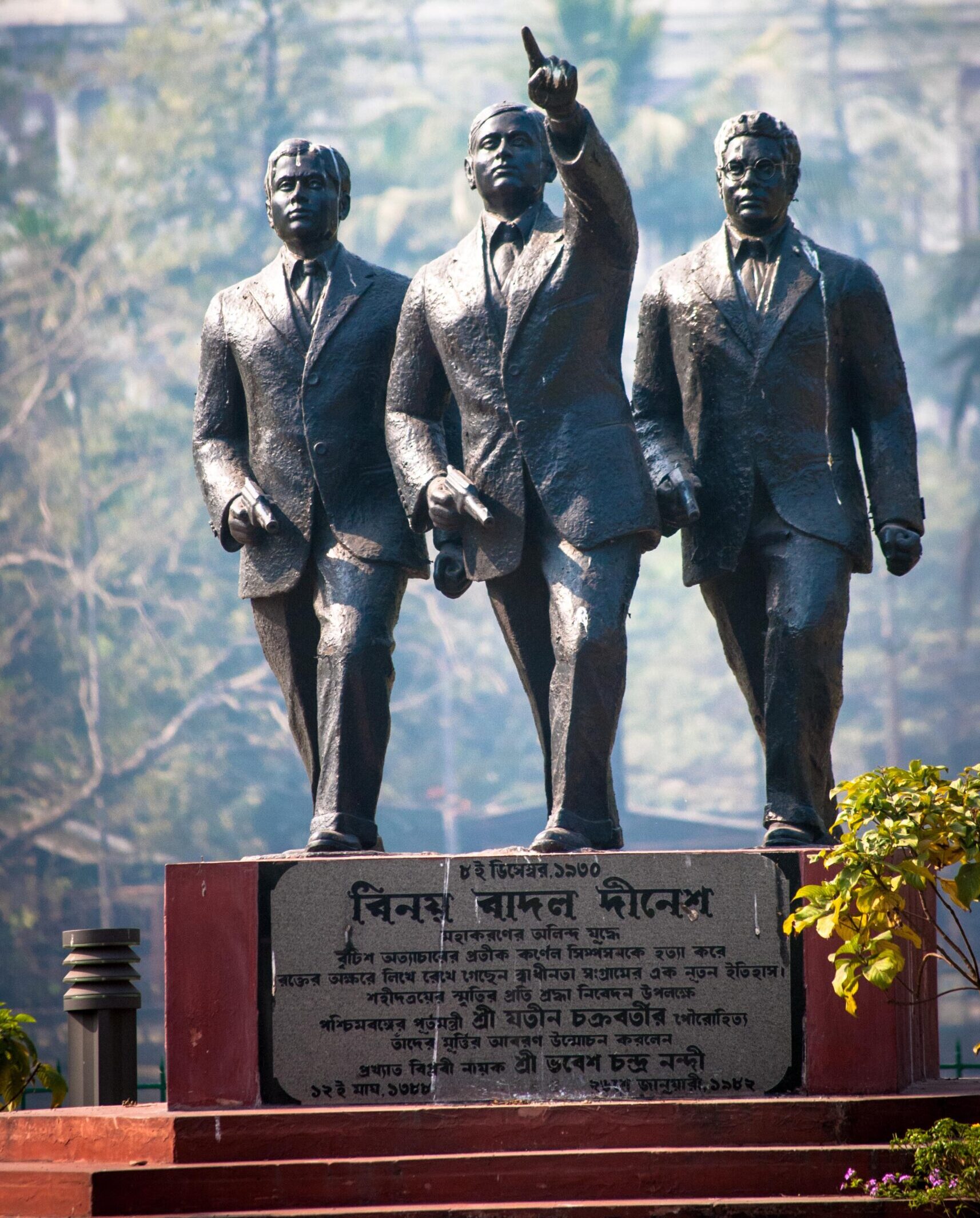“The problem with people like that,” my friend said about a fellow historian, “is that they have not changed their minds about anything in 30 years.” It was one of the worst things you could say about a reputable scholar, I thought. It meant the person had stopped thinking ages ago. The mind had shut down. They’d figured it all out by the time the dissertation was submitted. It was so different from my own experience, from the way I was taught, from the way I’ve always imagined historians work. We don’t just revise other scholars; we revise ourselves.
In a seminar I took during my first year in graduate school Kenneth Stampp read us a paper entitled, something like, “My Life with Lincoln.” I don’t remember many of the specifics, only that he traced the process by which he had over the years changed his mind about the 16th president. He never became a Lincoln worshipper, but over time Stampp had become less critical; he found more to admire. Some years later, while I was teaching at Princeton, I read a book that had recently been published by my colleague, Lawrence Stone, in which he argued that one reason the English aristocracy had persisted for so long was that the emerging bourgeoisie, rather than repudiating aristocratic values, had actually embraced them. Call this the aristocratization of the bourgeoisie. When I bumped into Stone on campus one day I pointed out that his new book contradicted a claim he’d made in his earlier study of the family, in which he’d argued that bourgeois notions of “affective kinship” had triumphed in part because those notions had been taken up by the traditional landed elite. This was the more familiar embourgeoisment of the aristocracy. Stone smiled at me and said, something like, “Well you can’t just keep saying the same thing. You read more, you do more research, you think more about it, and sometimes you have to change your mind.” One last story: In January 2012 I was on a panel at the AHA annual meeting in Chicago celebrating the career of Jim McPherson and in his talk he explained that when he began writing back in the 1960s he had absorbed the abolitionist criticism of Lincoln but that over the years he—like Stampp—had changed his mind and come to admire Lincoln for qualities that the abolitionists did not always appreciate. Stampp, Stone, and McPherson were all important influences on me, so it’s hardly surprising that in my own graduate teaching I find myself every once in a while pointing with dismay to this or that historian whose latest book suggested that, alas, they had been saying the same thing for decades.
I’m not advocating trendiness. If anything, I’ve always taken a certain stubborn pride in resisting popular trends. I became skeptical of the increasingly bloated claims being made for “culture” almost as soon as historians made their famous turn. I dutifully read through Foucault and Bourdieu, Butler and Jameson. I even taught them. But in the end I found Marx and Weber more useful to my work—though I have to confess I found Rodney Hilton and Perry Anderson even more useful. I absorbed all the denunciations of consensus history, but they did little to diminish my admiration for a generation of postwar historians that included not only Richard Hofstadter and Louis Hartz—who, after all, bewailed the liberal consensus—but also the extraordinary school of neoprogressives that included not only Stampp but also C. Vann Woodward, Merrill Jensen, and Arthur Schlesinger, Jr., writing at his very best on the ages of Jackson and Roosevelt. I’d read too much Carl Bridenbaugh to believe that writing social history was a mark of sophistication, much less radicalism. And anyway, was the social history produced after 1965 really more sophisticated than the social history produced earlier by Oscar Handlin or Bernard Bailyn? Has African American history surpassed the standard set by John Hope Franklin and Benjamin Quarles in the generation after World War II? Did Frank Tannenbaum, C.L.R. James, Eric Williams, or Stanley Elkins, need to be lectured against treating slavery in parochial terms? Recently, as I was reading Age of Fracture, Daniel Rodgers’s book on the intellectual history of the last quarter of the 20th century, I felt as though I were flipping through a catalogue of all the trends I’ve spent most of my own intellectual life resisting. I’ve always been skeptical of our profession’s Whiggish assumption that the newest scholarship is better, more “complex,” than what came before. Sometimes it is and sometimes it isn’t. We certainly grasp the importance of racial ideology, gender, and sexuality, better than our intellectual forebears did, but I don’t know that we understand slavery better than Moses Finley did and I’m bewildered by the fact that recent U.S. historians have been of so little help in explaining how finance capitalism works.
But if I’m not advocating trendiness, neither do I have any desire to dig in my heels and cling to the scholarship of the past, especially my own. Over the years I’ve changed my mind about many things; I even enjoy the experience of realizing that something I once believed to be true no longer seems to be so. This process of self-revision began years ago, shortly after my first book was published, when I quickly concluded that “guilt” was a woefully inadequate framework for understanding the religion of the southern slaveholders. By the mid-1980s I was becoming sensitive to the limits of the therapeutic culture from which the “guilt” thesis had originally emerged. It later became clear that there was a lot more going on in the theological history of the slavery debate than I knew at the time. There was a different problem in my depiction of the slaveholders as “capitalistic.” It was based on too close a reading of too many sources to be empirically vulnerable, and there’s little in my actual description that I would change today. But that troublesome adjective “capitalistic” was a misfire. It glossed over a crucial distinction between the age of “merchant capitalism” within which New World slaveholders emerged, and a later stage of capitalist development based on free and increasingly waged labor. It still seems obvious to me that southern slavery was racial slavery and that racism was indispensable to proslavery ideology, but I’m more skeptical than I once was of what I call racial consensus history—the tendency to view racism as the nation’s “original sin,” a transcendent historical universal, the too-easy, ever-available explanation for whatever it is we’re trying to explain. Similarly, I still start from the premise that a slave economy operated in ways that were fundamentally different from the workings of a society based on free labor, but I’m more inclined to distance myself from the classical critique of slave economies—that they were essentially, structurally, weak. More recently, I assumed that Frederick Douglass could serve as a representative voice of the abolitionist movement—and for certain purposes I think that assumption still holds. But Douglass’s version of antislavery constitutionalism now strikes me as unrepresentative in ways that matter. Like most historians, I always assumed that the trajectory of the Civil War shifted over time, from a struggle for the restoration of the Union to a war against slavery. It now seems clear to me that for Lincoln and the Republicans the war was always about both—that they never separated “liberty” from “union” the way historians nearly always do.
That said, I’ve also held on to some of the basic premises I picked up at Berkeley long ago. I was strongly influenced by the critiques of depoliticized social history published in the 1970s by Eugene Genovese and Tony Judt. Without quite realizing it back then, I came to believe that the narrative spine of human history runs along the intersection of politics and social structure as it moves through time. I still believe that, although I’d like to think I could be persuaded otherwise.
And so it goes. I try not to be overly committed to anything I’ve put into print. Print captures my thinking at the moment of publication. Sometimes all it takes is evidence, new or newly persuasive evidence, to get me to change my mind. At other times I become aware of dubious premises I had unconsciously assumed, and so back away. Occasionally I’m impressed by what Jürgen Habermas calls “the unforced force of the better argument.” And there’s always something new to learn. The more documents I read the more nuances I’m likely to notice in the next one I read. It’s like learning a language I didn’t even know existed. It’s hard to figure it out, but it’s also fun; serious, but joyful. It’s why I love what I do. Because every day the past seems just a little bit different to me than it seemed the day before.
James Oakes is distinguished professor of history at the Graduate School and University Center of the City University of New York. He is the author of Freedom National: The Destruction of Slavery in the United States, to be published in December.


